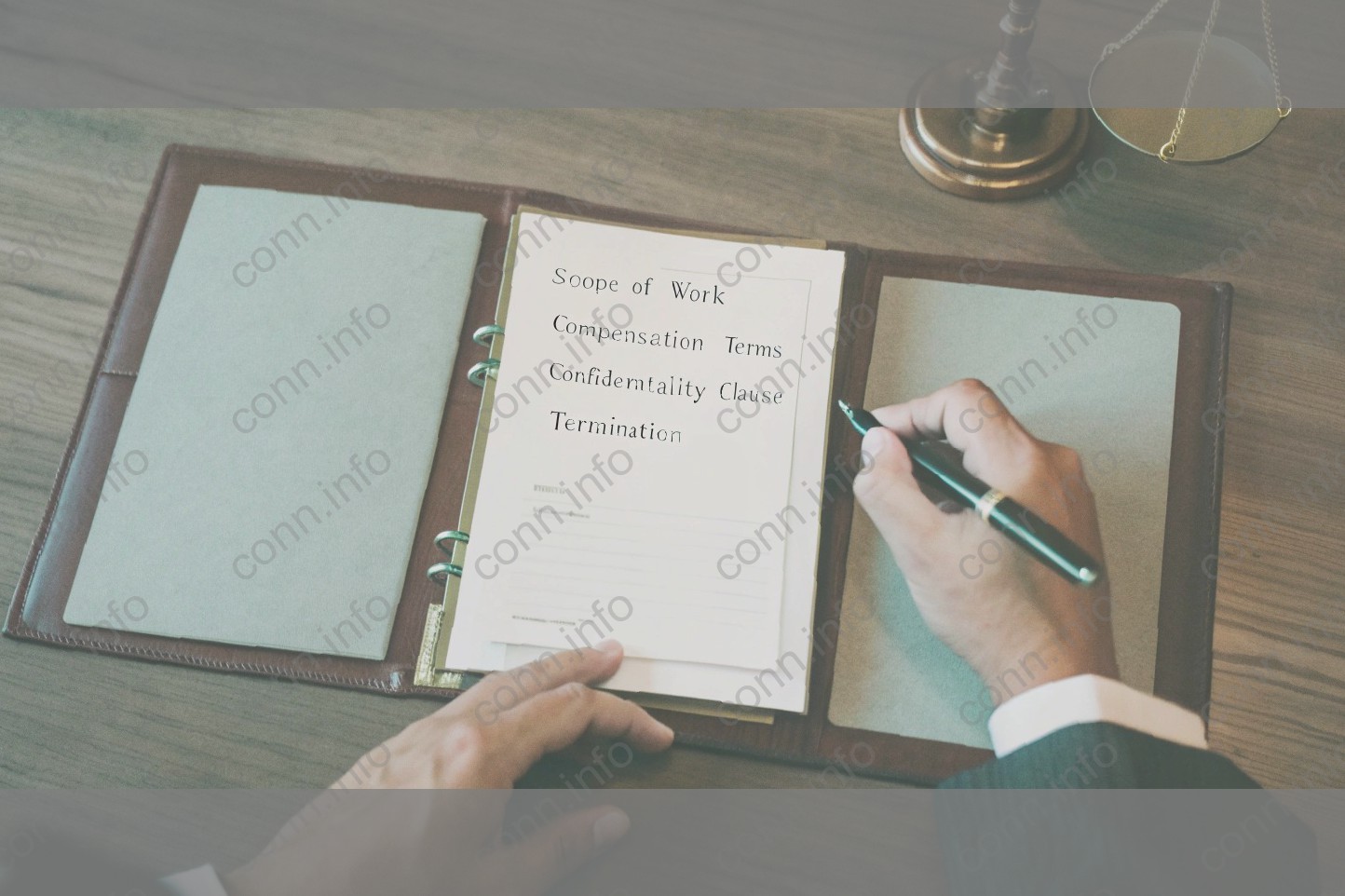What is an Expert Witness Contract?
A legal expert witness contract is a type of legal contract that defines the relationship between an expert and a hiring party or law firm. Many times, the hiring party or law firm is serving as a type of "middleman," and the fact that there even is a contract is to their benefit. The legal expert witness contract essentially protects everyone involved in the legal matter, including the legal matter itself. An expert witness contract also does the following:
An expert witness contract is just as comprehensive and detailed as a standard legal contract, but it allows for a little more flexibility. An expert witness contract defines the amount of compensation that may be paid for services , but the amounts involved may change. Variables include the amount of time the expert must set aside for the matter, any preparation involved and the amount of work the expert must complete himself or herself and what is left to the hiring party or law firm. Similarly, the language contained in an expert witness contract is strong and protects the interests of the hiring party/law firm, but additional language may be developed as necessary. For example, a legal expert witness contract may contain specific language about whether testimony will be provided by phone, if possible, and/or whether the expert will travel for sit-down depositions.
The Components of an Expert Witness Contract
A well-crafted contract not only protects the expert witness but also safeguards the hiring attorney and the client. Common components are addressed below.
Components of Expert Witness Contracts
Scope of Work
The scope of work should be clearly defined in the contract. Set out specific details such as types of support to be provided (study of records, deposition, trial testimony, etc.) and time frame for each item of the scope.
Compensation Terms
The contract should specify wages, payment frequency, whether there is a retainer and how travel and other expenses will be calculated. Will the billing be hourly or flat rate? Will there be a charge for "waiting" time at a deposition or court hearing? Will there be different rates for different types of work?
Confidentiality Clause
Most contracts will contain a confidentially clause to protect both the expert and the attorney from finding their names published in other sources; specifically, on online databases for other attorneys to purchase. Typically, the contract will specify that the expert is prohibited from all third parties including on professional networking sites. Some contracts may even prohibit testing the boundaries of the clause by posting on the expert’s blog or website.
Termination
Termination clauses should cover establishing the conditions under which the contract would end and procedures for how to terminate it. In the event of a termination, questions about whether or not payment is due must be answered such as will there be a pro-rata payment if the termination occurs before completion of the assignment? Furthermore, the contract should set out the protocol for how the expert will be compensated for the work they put in up until termination? Is there a notice period required? Are there conditions for immediate cancellation?
All of these items should be covered in the contract to ensure that there is a clear understanding between both the lawyer and expert and there will be no communication issues later on. Because the contract is designed to protect both parties, changes should be communicated and consented to in writing.
Legal Requirements and Responsibility
When it comes to expert witness contracts, both parties – the non-retained attorney and the retained expert witness – have certain legal obligations and responsibilities. These can cross over into any number of legal theories, such as breach of contract, leading to substantial risks if they are not properly adhered to in the contract. For example, the most common of these obligations is the duty of confidentiality. This requires the non-retained attorney to not share private information with anyone outside of the case, whereas the expert witness must keep all details included – whether of discovery or the communications between the attorney – confidential as well. Violation of this duty, especially on the part of the expert witness, could lead to criminal investigation and charges, in addition to civil liability.
The Hidden Benefits of an Expert Witness Contract
The crux of any agreement between retained experts and attorneys rests on the contract signed by the parties. A well-defined expert witness contract benefits both the expert and the attorney. An expert witness who has a contract with clear, definitive terms is in a much better position to avoid litigation with an attorney or a client. Similarly, an attorney who defines the contract with a comprehensive scope of terms is better balanced in the litigation and can avoid disputes between the retained expert and the opposing party.
One primary benefit of an expert witness contract is the minimization of disputes between the expert and the attorney. In fact, "Litigation, similar to all other human enterprises, run more smoothly when clear guidelines are established at the outset of various relationships". This advice applies to expert witnesses and the attorneys who employ them. Unless the contract provision is waived by the parties, only the attorney is responsible for paying the expert’s fees. Although attorneys may provide the litigant some clear expectations from the outset, often the attorney may not know the specific uses of the report in advance. Therefore , the witness’s fees may increase dramatically if the attorney has to seek the experts’ assistance to prepare the report in response to discovery in the case. The contract should clearly state any specific uses of the report. In addition to establishing the attorney as the client from whom the expert will be paid, the agreement should clearly specify the scope of the engagement so that the expert does not charge for any services outside of the agreement.
Another benefit of having a detailed expert witness contract is that it improves the attorney’s ability to attempt to avoid litigation and try to resolve unmet expectations set forth in the contract with the expert. For example, if an expert fails to return a report or whether the report is late, these types of violations can have a significant impact on the litigation. An attorney who is able to recall the agreement and questions the witness’s lack of response may resolve the situation without resort to court mishandling of a missing report. If the attorney waived or requested a change to the contract, the attorney should be certain to confirm the change in writing. This is especially true when the attorney and the expert agree to accept the State Bar’s published rate for their fees.
Pitfalls and Things to Avoid
No contract is perfect, but there are certain clauses that can create problems if they are not drafted properly. One of the most difficult provisions to draft in an expert witness contract is the scope of work. Parties tend to have different views on what information needs to be considered and the level of detail required in the expert’s report. To avoid any confusion, parties should draft a description of the facts, topics and/or documents that the expert will consider in forming his or her opinions. This is especially important if the parties are contracting after the lawsuit has been filed.
Another common omission is a provision addressing underlying facts, documents and/or testimony covered by a privilege. Older ABA guidelines were included in many expert contracts requiring the expert to waive any privilege he held regarding data provided by the opposing side. More recent guidelines recommend against such a provision. We agree with this evolution, but many older contracts still include waiver language. You should consider whether you need this provision, and if so, revise the provision to make it clear that it applies only where necessary for the expert to practice the art of medicine.
As discussed above, the expert must disclose everything that he has thought about, opined upon or otherwise considered in forming his opinions. Often this will include other opinions that the expert has formed in other matters, as well as preliminary work on the case at hand that the expert did not intend to use in this case. Some experts do not view this kind of work as being relevant to the contract, and object to providing this material. We recommend always having a catch-all provision in the contract requiring disclosure of all information considered. You can then work out a negotiation process for protecting preliminarily formed opinions, drafts or processes that the expert has no intent to use in the case, if necessary.
Expert Witness Contract Templates and Help
Expert witness contract templates are available online, and some of them prohibit reuse. You might consider downloading a few different templates, and comparing them with respect to general quality as well as the specifics of your unique situation. Many legal software programs provide templates for expert witness contracts, and the American Bar Association has also made many of its expert witness contract templates available now. You might also find expert witness contract templates at your local law library . Your local, county, or state bar association might also be able to recommend a barrister to help you draft your contract, or provide a blank template. Whenever available, assistance from a US jurisdiction should be sought in the review, revision, or drafting of contracts. In some cases, an expert witness may even be able to participate in preparation of their contract, or they may even have their own legal counsel review contracts.


